Graham Reid | | 12 min read
Willard Grant Conspiracy: Evening Mass

For a band which has released eight albums the alt.country/indie.rock band Willard Grant Conspiracy has - like Calexico, Giant Sand, Lambchop and others - rarely broken into mainstream consciousness.
Despite favourable reviews for live shows and albums, WGC remains the private passion of small but significant audience.
Yet those who have discovered them can be slavishly loyal and will enthusiastically tell you how the band formed in Boston in the mid 90s around songwriters Robert Fisher and Paul Austin, have been through numerous line-up changes and operate more a s collective of available players than a traditional band, have moved through a few record labels, and yet consistently deliver albums of heart and intensity, dark moods shot through with flashes of sunshine, and have memorable songs at their core.
They might also tell you that Austin amicably left the band a few years ago and that Fisher, who moved to southern California, has pushed on to deliver what many consider the band’s finest album yet in Pilgrim Road (2008)
A record of haunting beauty, it has been widely hailed: Uncut made it their Americana album of the month on release calling it “a magisterial career high”; Mojo said it offered “a whole new league of glowering sombre Americana”; and Bucketful of Brains said it matched the Bad Seeds at their glorious best.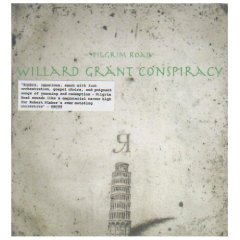
References to Nick Cave and Johnny Cash (for their emotional intensity) are not uncommon in reviews of Willard Grant Conspiracy albums, but the deftly orchestrated Pilgrim Road (for which Fisher co-wrote many songs with arranger Malcolm Lindsay) took the band to a different plateau again.
And yet they still remain below the radar of most.
So much so that Fisher is touring Australia and New Zealand as a solo artist.
I caught up with him in his Melbourne hotel where he was working, that work being calls to agents regarding another possible European tour next year for WGC, and messages to his sister back at home in California just to keep in touch about his day job.
Yes, Fisher still has a day job. He is a loans officer for a mortgage broker.
“Yeah, I’m tainted by the same brush as the folks that deserve to be tainted,” he says morosely. “The sad part is that all of this [economic crisis in America] could have been avoided.”
There followed a 10 minute discussion about Milton Friedman economics, Freddie Mac and Fannie Mae, adjustable loans, economics and politics, foreclosures which cost $100,000 a time . . .
After all that I had to ask, is your background in economics Robert?
No, but I’ve done this for a long time and before that I was in legal publishing and did a lot of publications on regulatory issues, oversight and so on. But I get time off to do ‘the other real job‘ which is always in jeopardy. While the broker I work for is an understanding guy he doesn’t pay me a salary, it’s all commission - so he’s not investing in my other career so to speak.
But while I’m doing this I’m not doing other things and unfortunately [the music] doesn’t pay the bills.
I was going to be blunt and rude and ask whether Willard Grant was economically viable.
Not at all, this [business discussion] isn’t an interesting conversation for people who aren’t interested in the economy - and the economics of music is something that most people really don’t want to know about. They prefer to think of themselves as artists.
But there’s a pragmatic bit that comes in at some point. So Willard Grant not a money maker, you just go from one album and tour to the next.
Kind of. I suppose it could be a little more break-even than it is, but I always struggle with the economics V income thing because I do make money outside of music - and I’m often making decisions to commercially support the touring or records because I am trying to get to something which, and this is inelegant, artistically represent the music the best way I can.
This current tour is a situation where I wasn’t able to do that so I’m doing it solo. I would much prefer to do it with members of the band because I think it serves the music better.
We just did a tour in May to support Pilgrim Road and we did 12 shows with a 15 person crew including 11 people on stage and that cost over $12,000 extra - even though the fees were very, very good and it was well attended and everything. I still had to pay an additional 12 grand. I’m not sure how I’m going to come up with that money.
So when it comes to going to Australia and New Zealand it takes at least $3000 per person before you even hit the ground, and that’s not even paying them, that’s just airfare and visas. That’s tough.
The art of pragmatism comes into it.
Yes, sometimes though - and we were having this discussion last night after the show - this is like any small business where you make certain promises and you have certain obligations. In my case there are obligations to the music and the people who play, and also to the people who put it out and the people who come to the shows. So quite often I make decisions which cost me ultimately because I think I have to a responsibility towards that end. It’s not a complaint, just an observation.
Interestingly in that mix you said you have a responsibility to the people who put the music out. It seems to me that you’ve always had good relationships with record companies. I don’t see published comments to the effect that the record company is a bunch of bastards. It seems you keep good relations with people.
I don’t see any point really, although the record industry really is a bastard. But even then I don’t think there’s a point to making that a public thing. But to use the words you were using, pragmatic, in the case of records we were on the Ryko label for four records and there is going to a time when you want to make a change potentially - and it’s not anyone’s fault particularly it’s just sometimes you need to infuse things with new energy. And people get set in their ways in thinking about things and so sometimes it just requires a new approach.
But I try to maintain good relationships with people, I don’t see any point in doing otherwise really.
And a flexible approach to the concept of the band. Is Willard Grant a concept or vehicle as much as a band given the number of people who have been through it?
I think it’s a band actually. If you asked any of the members who’ve been through it they would say so as well even if they don’t know each other. The way the form of Willard Grant was created was born out of realism and a sensibility about the way people live lives.
It’s the kind of thing which is based in the way human beings interact rather than this kind of forced architecture of a typical kind of rock’n’roll band. And truthfully, if you think about it, rock’n’roll is the only place where people force that concept of The Three Musketeers. Everything else - country music, jazz, everything - has a much more fluid concept of who plays in it and what constitutes a band.
I think the way I do it and the way Howe Gelb [Giant Sand] and Kurt Wagoner [Lambchop] does it, and a number of others, is based in a realistic notion that not everybody is available all the time with the same level of commitment that you have as the centre, the writer.
And they shouldn’t be penalised for that. When they choose to participate or are able to participate it should be celebrated.
I’ve seen that notion emerge through the 90s. It was not so prevalent prior to that, although you could cite the Ramones as a band where it didn‘t matter who was up there as long as the sound was the same. And Kraftwerk too obviously. You wouldn’t even know was up there in their case.
Yes, and the Residents where you didn’t even see the people at all.
The truth is that it’s age which creates this scenario. When you are 18 or 19 or even 22 you are happy to be part of a gang, and then life starts to happen and maybe you get married and a job and children - and those things take their own position in your priorities and bands become an unsustainable model. The architecture of it is unsustainable because of this notion of trying to isolate four people in a common purpose is rarely something you can keep going for any extended period of time. Even bands like U2, you listen to them talk and they’ve come close to not doing it numerous times and they ultimately decide they will continue because they still want to play music and make money doing it.
There is a sense of camaraderie which sometimes you can see pulling apart. In that Metallica doco Some Kind of Monster it is extreme, and I don’t understand why they bothered in the end.
Yeah, you wonder. If it weren’t having the level of success they were having, would they have? If they were a little indie band which struggles to get their records out or struggled to find an audience would they have gone further? I doubt it.
I doubt it too - and the buggers have come back again!
I guess it’s the same decision that anyone makes in their real life about their job. How many people are working jobs they don’t want to be doing but do it because the money is regular and they know they can make it work. The artistic centre of the business in music is a small percentage compared to the normal blue collar aspects of it.
Let us talk about music, but before that let me get some clarity: you live in southern California now, do many of the current band members live in close proximity or is WGC something you have to pull together?
I think I’ve been pulling it together for quite a while. There are members of the band who live in LA, but there are still quite a few in Boston, some in Seattle, some in New York, some in Holland, some in Japan.
So when it comes to thinking about going out next year is that a matter of phoning band members and asking their availability?
A little bit like that. Usually we are supporting a record so the people who have played on that usually get first dibs in terms of touring. But there is a whole bunch of it about who is available, what the budget is like and so on.,
There’s a very large European tour that is dragging its heels into existence and I don’t have a clear budget for it yet, but I have offers out to five or six people on it. But that for me is a disconcerting place to be because I don’t know if I’m going to be able to afford it.
And you do all of this - or do you have a manager?
I’m self-managed. It’s easier than it sounds I think, these are all my friends so it’s kind of easy. But being sole proprietor as it were has certain stresses.
Yet I notice as a songwriter you are a collaborator.
Yeah, I like that and think I’m better at that than solo work.
Because you have the other person to bounce lyrical and melodic things off?
I don’t know. I think my tolerance for my own craft is pretty low. Sitting in a room by myself and writing is not always the most fun thing. This is a smart-arse answer and I’m sorry for doing it, but the truth is music is more enjoyable as a collaborative thing. I’ve never thought of myself as a particularly good musician, I think of myself as supporting my habit as it were. And trying not embarrass the members of the band.
I try to get better at the craft but I’m not a virtuoso and have no ego involved in that, for me it is much more interesting to collaborate with incredibly talented people because the end result is better than what I could do on my own.
That’s interesting because you said right at the start you prefer going out with a band, yet I also hear other people saying that there is a freedom in being a solo musician that you don’t have within a band.
They are right about that. That has its interests and I find it challenging. In some ways it’s not about what I like, it is what is best for the music. And at the same time it is about what I enjoy - but ultimately I would rather play with people than not.
And when it comes to that writing process and you are collaborating is it, come on over to my house, I’ve got these half a dozen sentences I think we can do something with? I’m curious about how that collaboration starts with different people.
I think it is different with the different people. I don’t think there’s any kind of formula. With Malcolm on Pilgrim Road we talked about doing this record for six years on and off. Basically he approached me and said ‘if you ever want to do anything with an orchestra let me know‘. I thought that was interesting but never knew what I would do with that, then over the years we talked about what you could, what might be interesting to both of us - and some of that is also deciding what wouldn’t be interesting as well.
The first thing we decided was I thought it would be interesting to only colour the creative process with lyrics at first, so I just tipped him some lyrics and he responded with some music and we thought that was cool.
But then we thought it would be even more beneficial if we sat in a room together and composed that way and recorded at the same time, and that’s ultimately what we ended up doing.
It was very intuitive and there was an immediate level of trust, and I don’t think I spent any time going into the project wondering if it would work - but it was very fast and open and everything developed in a very natural way.
I don’t think we had any arguments about any of what we did. Not big arguments, not even small arguments.
And we set up the ground rules ahead of time about what we both wanted so we were on the same page about the ideas of using orchestral instruments as an organic part of he song writing - rather than the way a lot of people use string arrangements which are paths which support the emotional chording of the music. We were trying to do something a bit different.
And the other thing was to constantly keep in mind that less-is-more ethic which is what Willard Grant is really about.
So you may have 70 tracks on a song like Paint It Blue but it doesn’t sound like it, you can still hear air and the room and space.
All of that air and space is available for the listener to put themselves into, and that’s part of what I like to do with our music.
It certainly also creates, and this is a cliché, the sense of a sonic landscape where the listener can place themselves and I don’t get a sense of claustrophobia.
I’m glad you make that observation because that’s what we intend for Willard Grant, as musical entity it is inclusive and I want people to come to it and feel a part of it and to be in it. There is a lot of art and music that is aggressive and launches itself at you. I guess you could argue the music business is full of the myth-making where it is us V you and ‘we’re the cool band and you are the audience that wishes you were us‘. That kind of thing.
And Willard Grant is not about that in any way whatsoever and most importantly not about that musically.
I like to think our music is inclusive and as a songwriter that’s what I try to do also, to write open-framework stories which have enough of the story for people to drop themselves into, but are open enough for people to be able to finish the story for themselves.
When you play here will you predominantly be playing material from Pilgrim Road?
No, from everywhere, there’s eight records so I can draw from everything. And I’ve never played there before so there may be a coupe of people in the audience who want something from the second album or something like that.
I may not play what everyone wants, but one of the freedom things you were talking about is that I don’t have a set list, and in the band we often don’t have one either.
So there is flexibility - but at the same time I’m not Richard Thompson so I’m not going to play for two hours and keep you captivated.

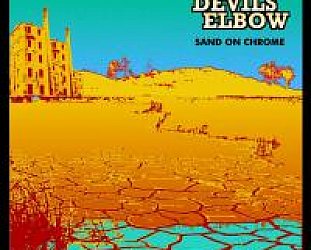
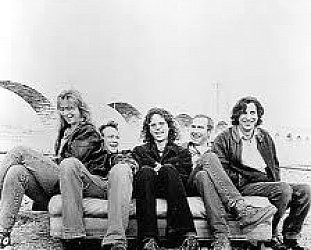
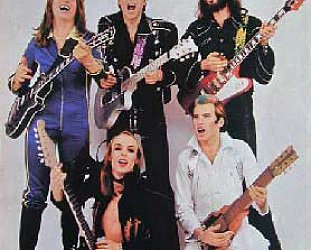

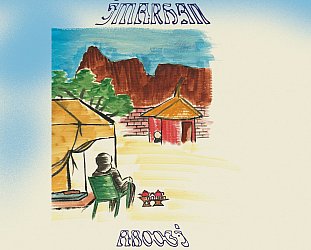
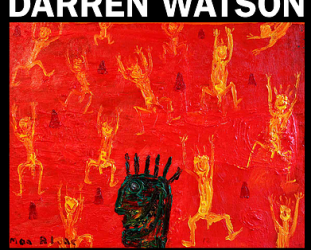
post a comment